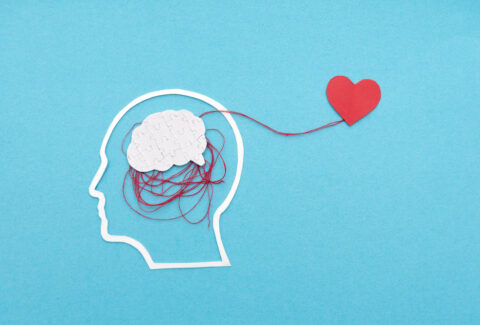How Your Eating Habits Are Harming Your Mental Health?

How Your Eating Habits Are Harming Your Mental Health?
When we think of health, we often think of exercise, getting fit or preventing ourselves from contracting diseases. However, the food we eat daily also plays a significant role in our mental well-being. Recent research has demonstrated a powerful link between diet and mental health, that what we eat can either support or damage our emotional well-being.
If you’ve ever struggled with low energy, mood swings or constant stress, your meals might be a bigger part of the problem than you realise.
The Connection Between Diet and Mental Health
Our brain requires the proper nutrients to work effectively. Like the body, the brain finds vitamins, minerals and proteins essential to remain active and balanced. Bad eating habits, including skipping meals, overconsumption of processed foods or an over-reliance on sugar, can lead to chemical imbalances in the brain. It gradually impairs your concentration, your memory and also your mood. That’s why some mental health programs now offer nutritional counselling as part of treatment.
In short, what we eat doesn’t just apply to our bodies: it applies to our mental and emotional states. A diet that consists of fresh vegetables, fruits, whole grains, lean proteins and healthy fats supports brain health. Thus, fast food and processed snacks tend to be harmful.
Sugar and Anxiety – A Hidden Link
One of the worst eating habits for mental health is eating too much sugar. Some people turn to sweets, chocolate and sugary drinks when they are feeling stressed in the hope of finding rapid relief. However, sugar leads to short spikes of energy followed by crashes. This roller coaster ride affects mood, with more people feeling anxiety or irritability, if not outright depression.
There is a clear relationship between sugar and anxiety, according to some studies. Excessive sugar is also linked to the risk of stress disorders, poor quality sleep and an over-sensitive brain to negative emotions. Feel free to snack on fruits, nuts, and yoghurt if you are feeling blue. It will make you feel better, and the sugar substitute won’t put holes in your teeth.
How Food Impacts Mood?
We tend to underestimate the influence of food on mood. For instance, high trans fat and processed food can lead to fatigue and irritability. Meanwhile, nutrient-dense foods like salmon (which packs omega-3 fatty acids), spinach (abundant in folate) and berries (full of antioxidants) can enhance emotional resilience.
One of the habits that is bad for mental health is consuming excessive caffeine. And coffee may make you feel more alert for an hour or two. Still, there is a documented relationship between high caffeine consumption and feelings of restlessness, disturbed sleep, and even panic attacks in sensitive individuals.
Just by paying attention to how food affects their mood, people can make small dietary changes that result in significant improvements in emotional health.
Diet and Mental Health: Everyday Examples
Here are a few popular eating behaviours that could be quietly sabotaging mental health:
- Skipping Breakfast – If you skip breakfast, your blood sugar levels drop, and that can leave you feeling unfocused and with low energy.
- Excess Junk Food – Fast food is loaded with unhealthy fats that disrupt brain cell communication, making it difficult for the mind and body to respond to stress.
- Low Water Intake – Dehydration can lead to headaches, tiredness and confusion that exacerbate mental strain.
- Lack of Nutrients – Lacking vitamins, including B12 and D, can cause mood disorders.
- Irregular Eating Patterns – Eating at strange times or gluttonous late-night feasts can mess with sleep and exacerbate anxiety.
Read through these minuscule habits that slowly chip away at emotional health and make life just a little bit more stressful.
Positive Eating Habits for Better Mental Health
The good news is that slight changes to what you eat can also help your body and mind. Small changes, such as eating whole foods, drinking more water, and cutting back on sugar, can yield significant improvements in long-term mental well-being. Balanced diets are recommended by mental health programs everywhere as they lower your risk of depression and anxiety.
Here are a few good eating habits:
- Eat well, and eat regularly.
- Use omega-3s like fatty fish, chia seeds or walnuts in your diet.
- Choose complex carbs such as oats and brown rice, rather than refined sugars.
- Make sure you are also including enough water in a full day.
- Cut back on caffeine and alcohol.
People can be more vibrant, focused and emotionally stable when they eat mindfully.
Conclusion
There is a much stronger link between your eating habits and mental health than you may believe. From sugar and misery to how your diet affects your mood: Studies show that what you eat can send stress levels through the roof as easily as it sends weight and anxiety. On the other hand, choosing great food can also improve mood, productivity and emotional balance.
Simple changes to what you eat can make a notable difference in how well you feel most days. If you care about long-term health, remember that diet and mental state are deeply interconnected.
At Karan Kakkad: Best health wellness coach, the emphasis is on helping people to lead healthier and happier lives through practical diet guidance, complemented with lifestyle changes. His shows focus on demonstrating and teaching the importance of balancing nutrition, staying positive, and adopting healthy eating and lifestyle habits that offer individuals steps to improve their lives. Under his direction, thousands have discovered new ways to stabilise moods, ease tension and stress, and recover lasting mental health.
FAQs
Q1. How does diet affect mental health?
A1. A subpar diet that lacks nutrients may, at best, trigger mood swings and stress, but worse, it could lead to depression and anxiety as well as other psychological issues.
Q2. Can sugar really increase anxiety?
A2. Yes, sugar and anxiety go hand in hand. A high sugar diet leads to energy slumps, moodiness and tension, which exacerbates anxiety.
Q3. What foods are best for mental health?
A3. Omega-3s, antioxidants, wholegrain foods, green leafy vegetables and lean proteins are some of the foods that can help with mental health and overall mood.




Recent Comments